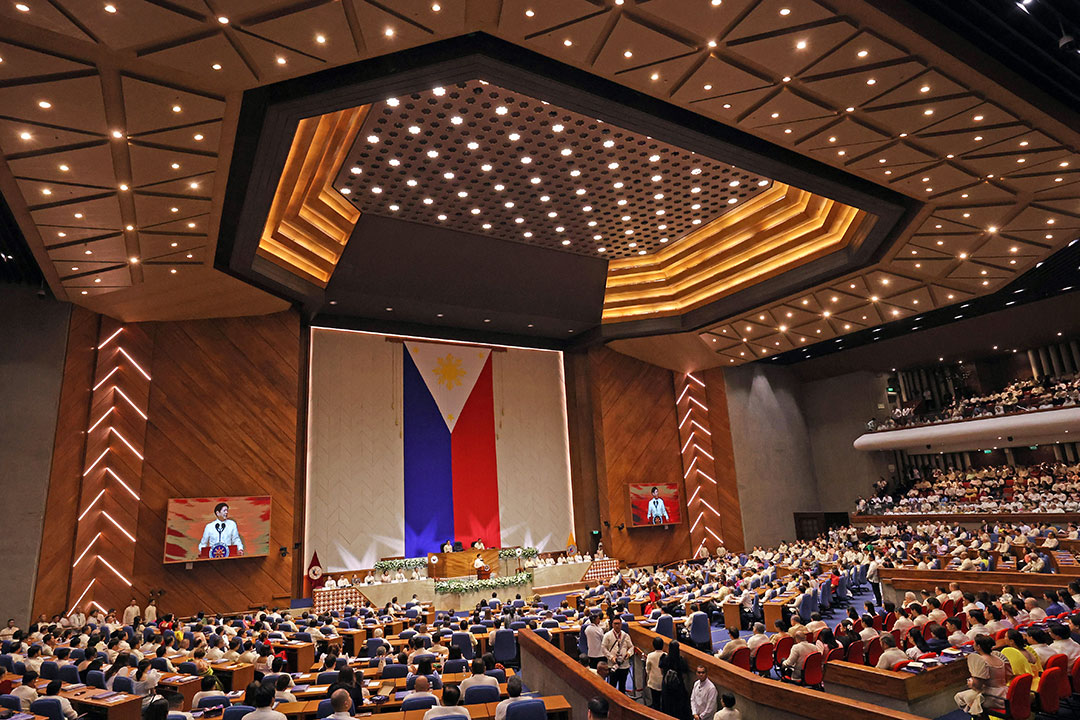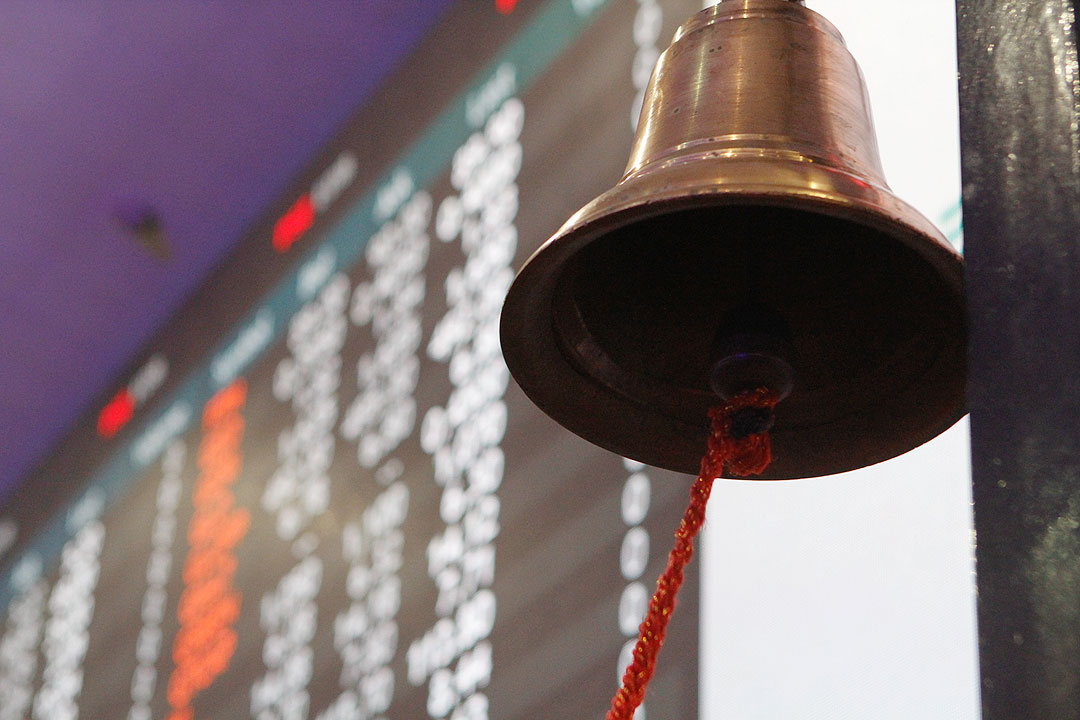
Upgrade to High-Speed Internet for only ₱1499/month!
Enjoy up to 100 Mbps fiber broadband, perfect for browsing, streaming, and gaming.
Visit Suniway.ph to learn
 President Ferdinand R. Marcos, Jr. delivers his third State of the Nation Address before the joint session of the 19th Congress at the Plenary Hall of the House of Representatives, July 22, 2024. — PHILIPPINE STAR /KJ ROSALES
President Ferdinand R. Marcos, Jr. delivers his third State of the Nation Address before the joint session of the 19th Congress at the Plenary Hall of the House of Representatives, July 22, 2024. — PHILIPPINE STAR /KJ ROSALESBy Kenneth Christiane L. Basilio, Reporter
A PROPOSAL seeking to amend the economic provisions of the 1987 Constitution is being crafted at the House of Representatives, a congressman said on Thursday, which could revive yet again a contentious effort in changing the 38-year-old charter.
Party-list Rep. Alfredo A. Garbin, Jr. said he is drafting a House resolution that could kick-start discussions on economic Charter change, referred to as Cha-cha. He did not share details about its content and timeline.
“I’m still working on the draft,” he told BusinessWorld in a Viber message in Filipino.
Philippine lawmakers last year launched efforts to ease foreign ownership limits in sectors like public utilities, education and advertising, but the push stalled after senators and congressmen failed to agree on how to collectively deliberate the proposed amendments.
The Constitution caps foreign ownership in key industries to 40%, requiring the remaining 60% to be held by Filipinos.
The House has pushed hard to ease the economic provisions of the Constitution in the first half of President Ferdinand R. Marcos, Jr.’s term, as it passed a bill to form a constitutional convention in 2023, and a year later, a resolution that urged lawmakers to discuss proposed amendments jointly.
There was also a separate push to initiate Charter change through a signature drive, but it fizzled following allegations that several congressmen were behind the campaign.
Constitutional amendments have long been a divisive issue in the Philippines, with nearly every administration since the 1980s attempting to revise parts of the charter.
Proposals have ranged from former President Gloria Macapagal-Arroyo’s push to replace the bicameral Congress with a unicameral legislature, to ex-President Rodrigo R. Duterte’s call for a shift to federalism during his term.
A LONG SHOT
The Marcos administration would unlikely back a move to amend the economic provisions of the Constitution, Arjan P. Aguirre, who teaches political science at the Ateneo de Manila University, said in a Viber message. “Any attempt to change the Constitution after the midterm elections is a long shot move.”
He said Mr. Marcos has entered his “lame-duck” period of his six-year term, which could potentially limit his political appetite for sweeping reforms.
Lawmakers should instead pursue measures strengthening the country’s political institutions while curbing corruption to entice foreign investors into the Philippines instead of another Charter change push, said Mr. Aguirre.
“I hope the government will consider investing in social capital — strengthening education through bills that improve our system, expanding healthcare access for more people, and supporting labor with a legislated salary increase,” he added.
On the other hand, the shift may also embolden the President to pursue Charter change, as he seeks to cement his legacy in the second half of his presidency, Ederson DT. Tapia, a public administration professor at the University of Makati, said via Facebook chat.
Still, there are possible “deterrents” to pursuing Charter change, he said, pointing to a “trust deficit” surrounding the government’s intentions in seeking constitutional amendments. “The ghost of political self-interest haunts any Charter change drive.”
“Proposals must be surgical and limited strictly to economic provisions: ownership caps, education, mass media,” said Mr. Tapia. “Anything more opens the door to political noise and resistance.”
Meanwhile, Leyte Rep. Ferdinand Martin G. Romualdez urged the incoming 20th Congress to pass more bills and pursue meaningful reforms, citing the “productive” performance of the previous congressional session.
He challenged incoming lawmakers during a fellowship dinner at the Presidential Palace on Tuesday to craft measures that are responsive to the needs and concerns of their constituents, according to a statement from his office released on Thursday.
“We wound up the 19th Congress as a very, very productive one,” he said. “But I’m not going to leave it there.”
“I think the 20th Congress may just live up to be the better one — with you there,” he added, referring to neophyte congressmen.
Mr. Romualdez, the President’s cousin, served as House Speaker for the entirety of the 19th Congress, and is expected to retain the post once Congress convenes again in late July, with a majority of lawmakers having expressed support for his continued leadership.
During the 19th Congress, the House filed 11,557 bills and 2,393 resolutions, passing a total of 1,565 measures, according to his statement. Of these, 287 were enacted into law.




